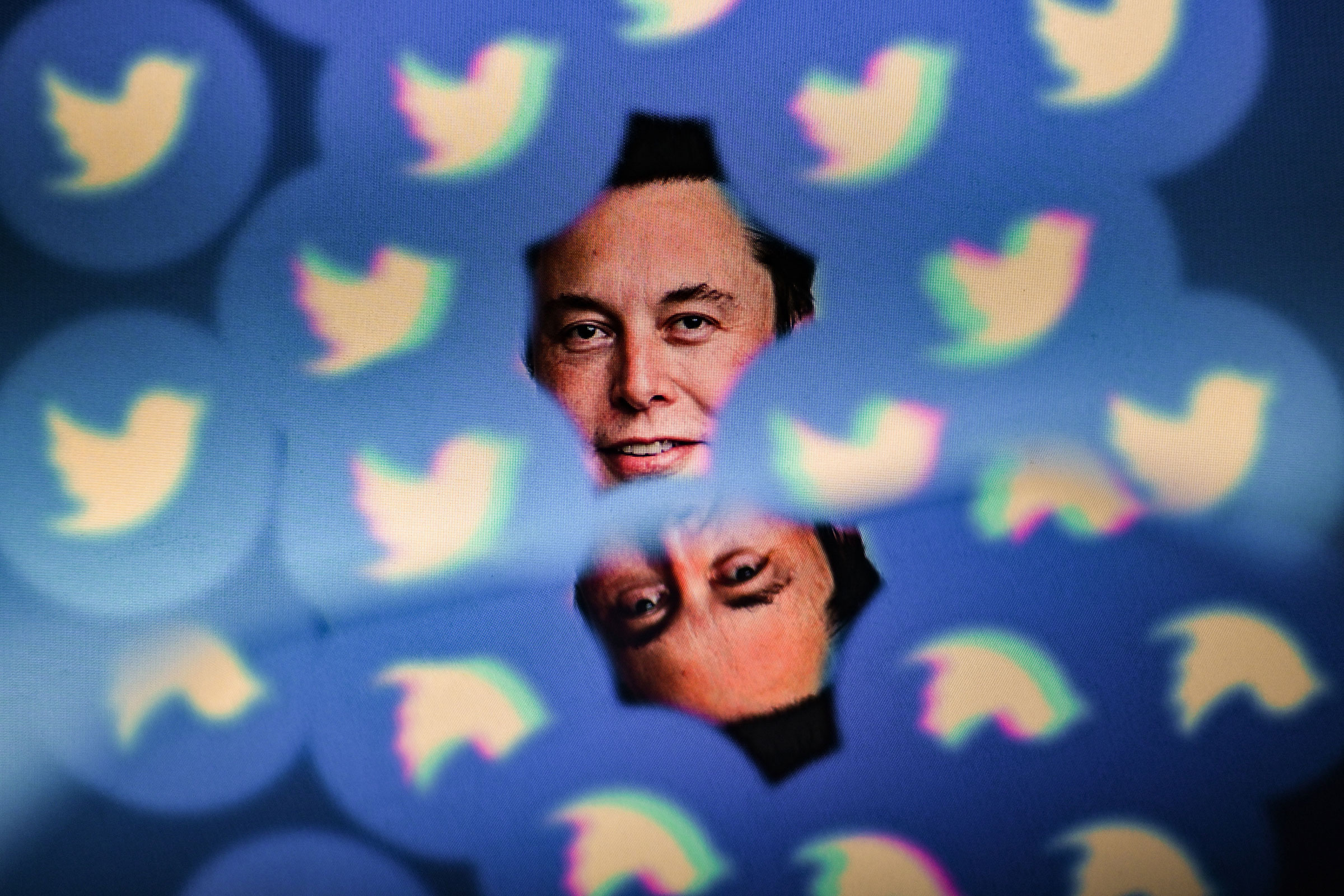
Last year, Elon Musk seemed to have escaped the force of gravity. Stock prices for carmaker Tesla, which accounts for the lion’s share of his wealth, hit all-time highs in November, while earlier, in April, SpaceX landed an exclusive NASA contract to put astronauts on the moon for the first time in decades. It was, as my colleagues and I wrote in TIME’s 2021 Person of the Year profile, “the year of Elon Unbound.”
But such radical success comes with its own perils—hurtling through space, one risks falling into the orbit of something else. Musk has spent an increasing share of his time on Twitter in recent years. The allure is understandable, as the platform provided an endless font of validation from his followers. But such seductions can change a person, often without them even noticing. Over the past year, Musk has seemed to lose focus on the electric vehicles and spacecraft that built his fortune to instead concern himself with the affairs of the online world, an obsession that perhaps explains his decision this spring to offer to buy Twitter for $44 billion, proposing to run the platform based on the principles of “free speech”—at least, as he defined it.
Musk had formerly found success on the leading edge of technological change. Twitter, though, was an aging empire, and the revolution that Musk proposed was not based on innovation, but on politics. Musk’s free speech line has proved to align with the agenda of an American Right incensed by social media platforms banning some of their most influential figures—most notably former President Donald Trump, who was booted from Twitter in the aftermath of his supporters assaulting the U.S. Capitol on Jan. 6.
Until recently, Musk was regarded as an apolitical figure: his politics are “not on the traditional left-right spectrum,” one observer said in our profile of Musk last year. But his online base has an apparent rightward tilt, and after Musk finally gave up trying to get out of his bloated acquisition offer, it became clear just how much that following had influenced him. In the past month, Musk has reinstated once banned conservative accounts like Congresswoman Marjorie Taylor Greene and psychologist Jordan Peterson, bantered agreeably with far-right figures, and even appeared to take direction from right-wing commentator Andy Ngo over which left-wing accounts to remove from Twitter under the pretense of halting leftist violence.
Musk says he will build the platform into something better than it was when he bought it. To do so, he’s tried to turn Twitter into an organization more resembling his other businesses, notably by purging the company of all employees not “extremely hardcore” in service of his vision. But at Twitter those measures seem to have had the opposite effect, cutting core engineering talent to the bone and costing the company many of the content moderators who who helped assuage advertisers’ fears over toxic content
Perhaps the most crucially self-sabotaging change was Musk’s attempt to create a new policy around verification, which allowed users to purchase a blue check mark for $7.99. Musk backtracked after the policy resulted in a tide of impersonation accounts. One user, for instance, wiped out $15 billion in value for pharmaceutical giant Eli Lilly after tweeting from a verified account that insulin would be given away for free. Twitter’s skeleton staff took six hours to remove the tweet, and Eli Lilly subsequently halted all advertising spending on the site.
As of Nov. 22, half of the platform’s top 100 advertisers had left, according to progressive watchdog group Media Matters for America. That’s a loss amounting to billions of dollars in revenue. Musk’s crown jewel, Tesla, has been dragged down as well—the car and battery company has lost more than half its value since the beginning of the year, in part due to investors’ skittishness over Musk’s erraticism in running Twitter, according to financial-services giant Morgan Stanley.
Observers might point out that Musk’s impetuousness is what brought him success in the first place. But his brashness has formerly been checked and channeled by other forces—among them, a coterie of former NASA and aerospace-industry engineers at SpaceX, who commanded a certain degree of deference from Musk, and at Tesla, the engineering mastermind JB Straubel, who as CTO was known for insulating subordinates from Musk’s ever shifting demands. In one case, when Musk tried to kill the company’s now enviable energy-storage division back in 2014, Straubel told engineers to keep working on the project anyway, saying he would take the fall if Musk found out.
But there don’t appear to be any Straubels among those surrounding Musk at Twitter—he has lots of friends, but perhaps not the kind he needs. He may yet remake the world’s information universe as he sees fit—and tough luck for the rest of us. More likely, this is Musk’s white whale, his Russian campaign. To grow, one must have an understanding of one’s own limitations. Wandering in an online echo chamber, a hall of digital mirrors, Musk appears to have lost sight of his.
More Must-Reads From TIME
- The 100 Most Influential People of 2024
- The Revolution of Yulia Navalnaya
- 6 Compliments That Land Every Time
- What's the Deal With the Bitcoin Halving?
- If You're Dating Right Now , You're Brave: Column
- The AI That Could Heal a Divided Internet
- Fallout Is a Brilliant Model for the Future of Video Game Adaptations
- Want Weekly Recs on What to Watch, Read, and More? Sign Up for Worth Your Time
Write to Alejandro de la Garza at alejandro.delagarza@time.com